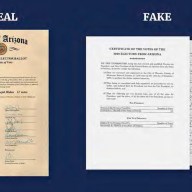With potential state budget funding levels on track to fall well short of requests from the University of Massachusetts, it appears tuition and fee freezes that students enjoyed over the past two years won’t be repeated next year. University officials plan to meet next week to discuss tuition and fee levels and the full University of Massachusetts board will likely finalize student costs for the 2015-2016 year at a June 17 meeting. The Democrat-controlled Legislature and former Gov. Deval Patrick boosted aid to UMass during each of the last two budget cycles, prompting UMass officials to make good on their promise to freeze tuition and fees paid by students and their families. Asked whether tuition and fees could be frozen for a third straight year, UMass spokesman Robert Connolly told the News Service Thursday that “it would be difficult to continue” holding the line again on tuition and fees at UMass. While nothing is definite yet, “it is certainly not as likely as in the past two years,” he said. Connolly said UMass officials are still going over the numbers in preparation for the upcoming meetings.
House and Senate budget negotiators and Gov. Charlie Baker are forging ahead with spending plans for fiscal 2016 that raise state spending about 3 percent, part of a concerted effort to rein in spending and avoid tax increases after this year’s budget careened out of balance. UMass received about $519 million in state assistance in this year’s budget and the university, facing collective bargaining and personnel funding obligations, sought more than $578 million for fiscal 2016. Baker proposed $526.5 million for UMass in fiscal 2016, the House recommended just under $519 million and the Senate approved $537.8 million. House and Senate negotiators often settle on a figure between the appropriations approved in each branch. Asked in May about the possibility of fee hikes, Baker said, “I would hope that given the support that we were able to provide to the higher-ed system that any increase in tuition or fees would be modest.” Martin Meehan, the incoming president of UMass, said in May that Robert Caret, the outgoing president of UMass, will be in charge of tuition and fee decisions before Meehan takes over July 1.
“We need to do everything that we can to keep tuition and fees as low as we possibly can. But the other perspective here is we need a world-class UMass, too,” Meehan said.
In June 2014, Caret celebrated the second straight year of level tuition and fees for in-state undergraduate students, touting the savings for families, the commitment to affordable education, and a “record infusion of state funds.” Under the so-called 50-50 split reached this year in which students cover half the costs and the state covers the other half, tuition and fees for in-state undergraduate students at UMass Amherst were held at $13,258, or $24,215 after accounting for room and board. Tuition and fees for in-state undergraduate students at the other UMass campuses, not including room and board, were $11,966 in Boston; $11,681 in Dartmouth; and $12,447 in Lowell.
Public state universities warned earlier this year that without an additional $9 million for collective bargaining contracts, students on the nine non-UMass university campuses would also likely face higher fees or the reduction the academic programs. “I think that’s unfortunate to hear that from state universities,” House Ways and Means Committee Chairman Rep. Brian Dempsey said at the time. “I’d like to hear them say occasionally they’d look at their expenses and maybe before they jump to raise fees they’d look at maybe some kind of consolidation. I think that’s really their responsibility.” Dempsey said the Legislature had increased funding for state universities by $34 million over that last two years, and House leaders proposed another $5 million increase for fiscal 2016.
“I don’t believe that we ought to be taking the default position that because we’re not able to increase it that automatically means that fees are going to go up. I think we all have a responsibility to look at the expense side of the equation. I’m hoping that they do that,” Dempsey said in April.
UMass costs to likely rise in 2015, 2016



















